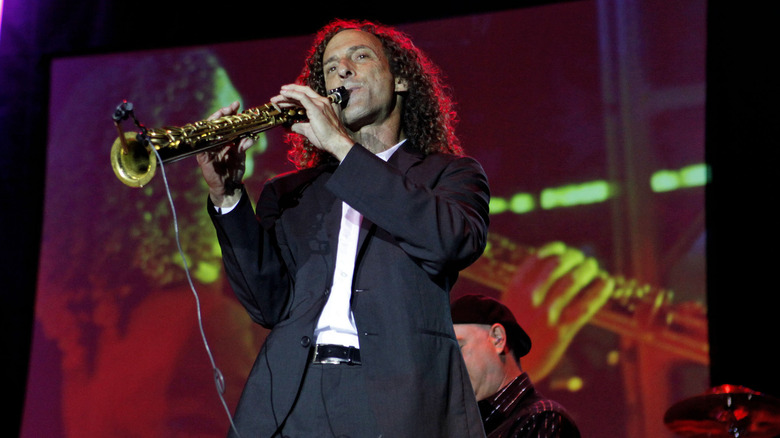You Probably Didn't Know About Starbucks' Record Label
Java lovers across the globe know the feeling of walking into a Starbucks coffee shop: the rich espresso aroma, lively conversation in every corner, and piped-in music setting the tone. But few realize that the Starbucks story includes a deep connection to the world of music. After humble 1970's-era beginnings in a sliver of a store at Seattle's Pike Place Market, Starbucks romped to infamy by transforming the coffee-and-conversation scene — so it should come as no surprise that music would be next on the ambitious company's agenda.
But did you know that Starbucks actually started its own record label with the intention of rewriting the world's musical playbook? After all, it had successfully brought coffee culture into the mainstream of daily life, so music seemed a natural progression when announcing its acquisition of the Hear Music record label in 2007. They already had a tentative presence in the music industry under a collaboration with Concord Music Group, releasing music by Ray Charles and Sergio Mendes, per Starbucks Stories. But they wanted more — and they got it, at least for a while.
What went wrong
There's no doubt that Hear Music was designed for greatness, evidenced by its early roster of renowned recording artists. Kenny G was the first artist to release a CD on the label, according to The Atlantic, followed by superstars such as Paul McCartney, Joni Mitchell, and Carly Simon. Former CEO Howard Schultz told Fast Company that Starbucks was widening what's possible in the music industry while working with both innovative new artists and established hitmakers from earlier generations, pointing out that buyers from those generations had disposable incomes and a proven record of music appreciation.
Schultz also knew how to capitalize on Starbucks' roaring popularity; the record company noted in a 2007 announcement that it already had a loyal audience with 44 million customer store visits every week spread across 13,000 stores in 39 countries. So, what happened just 8 years later for The Atlantic to call the label "Starbucks' failed music revolution." Noting that Starbucks was considered a record-label rebel advocating for musician rights and musical innovation, ultimately The Atlantic relegated the Hear Music demise to the end of physical music forms such as CDs.
The digital revolution may have ended the Starbucks record label, but the company is far from leaving the world of music. By 2016, Starbucks had already announced its current deal with Spotify in which coffee aficionados can digitally access curated music collections, playlists, and musical artist features through phone apps.

